Publications
Articles, publications, books, tools and multimedia features from the U.S. Institute of Peace provide the latest news, analysis, research findings, practitioner guides and reports, all related to the conflict zones and issues that are at the center of the Institute’s work to prevent and reduce violent conflict.
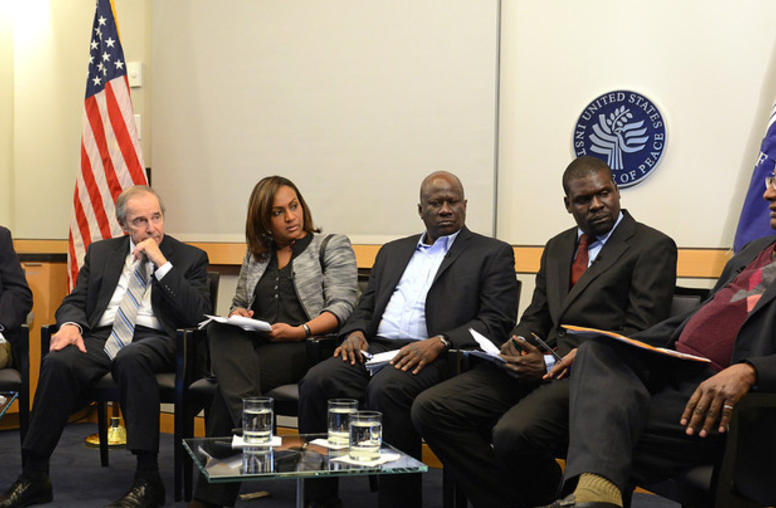
USIP Examines Sudan National Dialogue in Online Discussion
Several Sudanese experts joined Institute specialists for a wide-ranging, online-only discussion of prospects for launching a national dialogue in Sudan that could provide the basis for new, political arrangements, possibly including a new constitution and renewed efforts to peacefully address the country’s violent, internal political conflicts.
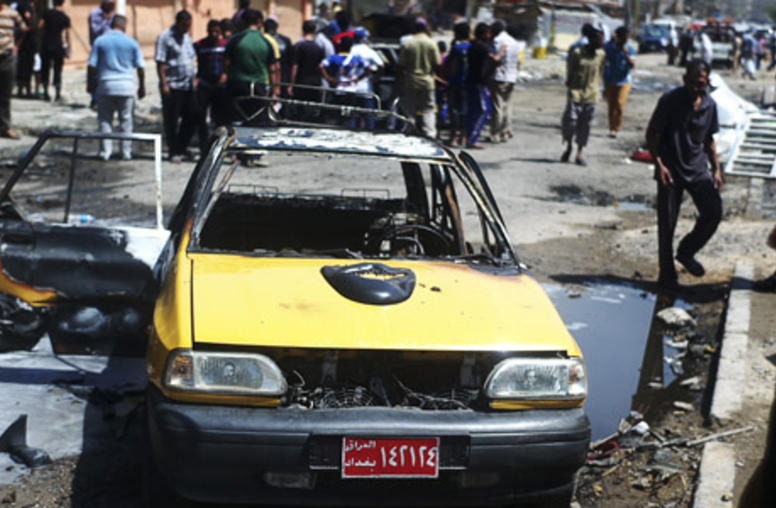
The 'Dark Matter’ of Peacebuilding
While reading a recent issue of Popular Science magazine, I was captivated by an article on “dark matter.” Scientists are trying to wrap their minds around the 85 percent of the universe we cannot yet see or understand. But what struck me were the parallels with the challenges of peacebuilding – the idea that conflict also may be 85 percent “dark matter,” requiring peacebuilders to probe more deeply as we practice our craft.
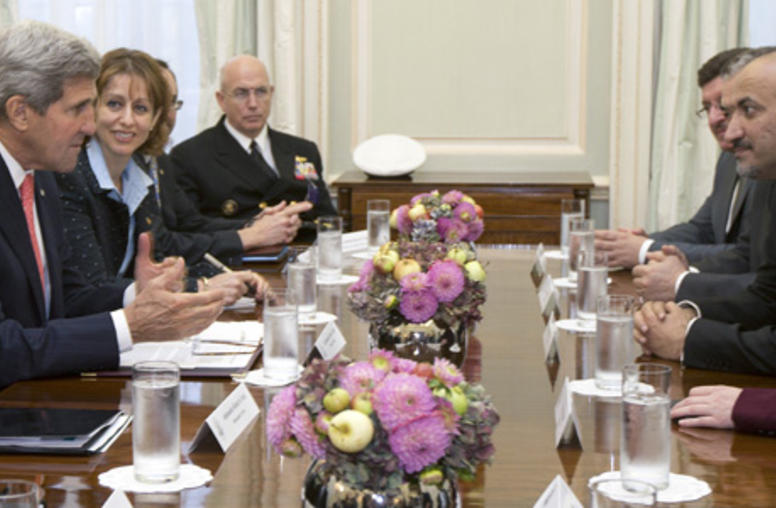
Debate Lessons
What can we learn from other peace processes that could help ease the negotiations in Geneva this January between the Syrian government and the country's fractured opposition? Many seasoned practitioners would argue that since no two conflicts are alike, it is dangerous to assume that what worked in managing one conflict will work in another. At the risk of proving the skeptics right, however, there are a few areas in which earlier conflicts might provide useful lessons for Geneva: identity i...
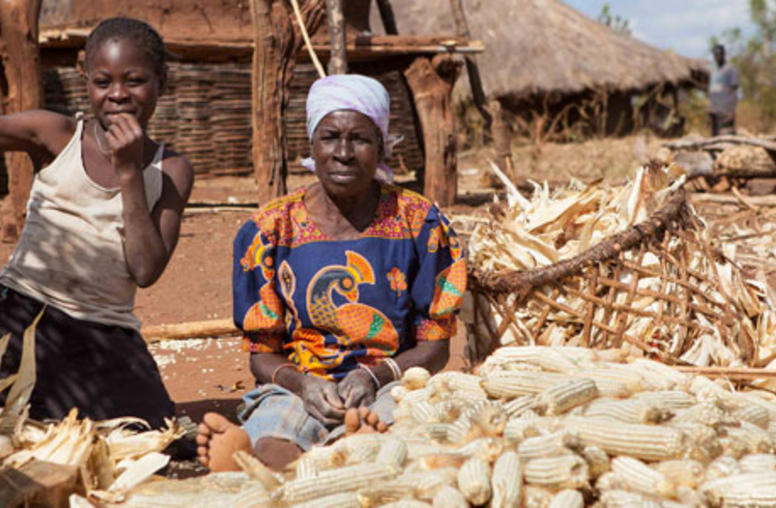
Food Insecurity’s Impact on Conflict Merits a Closer Look
A new report from the Woodrow Wilson International Center for Scholars illuminates the connections between conflict and food insecurity admirably, even as it recognizes that considerable work remains to be done on how food-related problems actually promote or alter conflict.
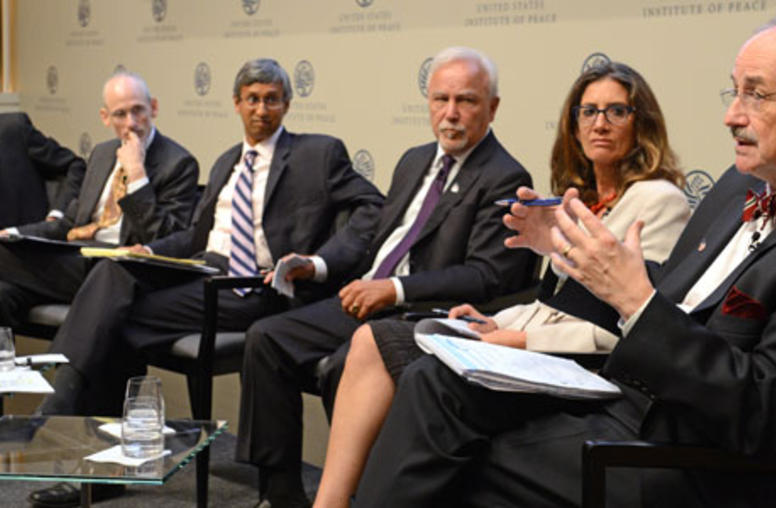
USIP Hosts International Gathering on Water Security and Conflict Prevention
Assuring access to water of adequate quantity and quality in the face of increasing challenges poses a growing risk of future conflicts. But in preventing any outbreak of conflict, better water management can play a vital role in building peace and cooperation, a variety of officials and specialists said at the Water Security and Conflict Prevention Summit held at the U.S. Institute of Peace (USIP) on September 10.
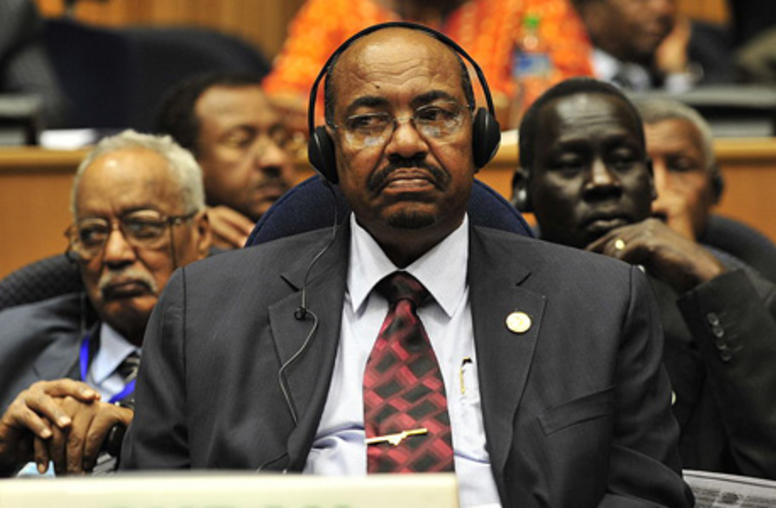
USIP Paper Calls for Sudan National Dialogue
Two of USIP’s leading thinkers on Africa issues have called for a national dialogue and reform process in Sudan—to be led by Sudanese.
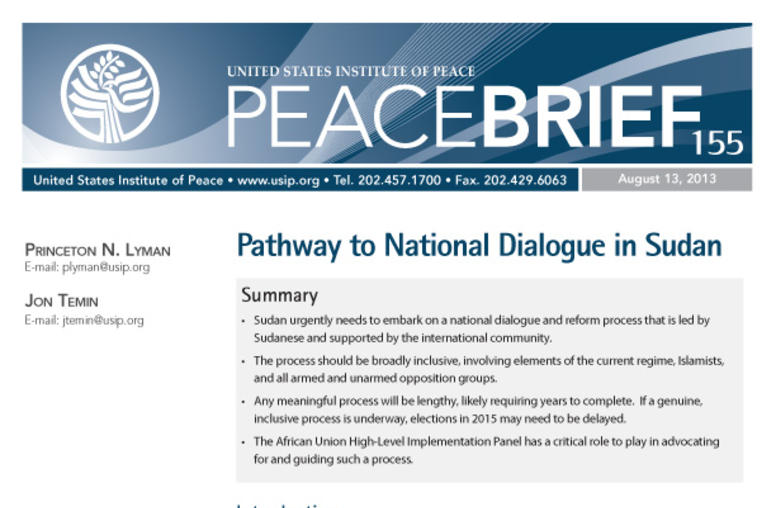
Pathway to National Dialogue in Sudan
Sudan urgently needs to embark on a national dialogue and reform process that is led by Sudanese and supported by the international community. Without such a process, Sudan has little chance of breaking its destructive cycle of instability. Authors Ambassador Princeton N. Lyman, a special advisor to the president of USIP and former special envoy for Sudan and South Sudan, and Jon Temin, director of USIP’s Horn of African program, examine the way forward.
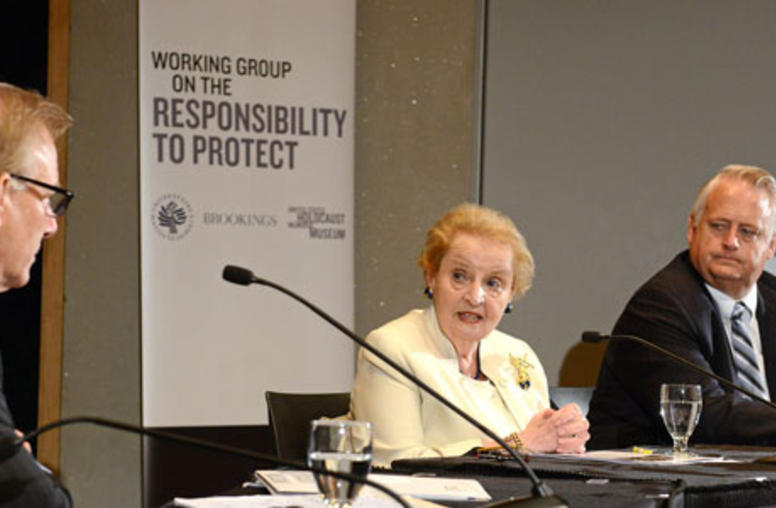
USIP, Partners Release Report on Realizing ‘Responsibility to Protect’
Despite the war-weariness of Americans and political and institutional obstacles, the United States should take the global lead in fulfilling the "Responsibility to Protect," an international norm aimed at protecting civilians from genocide and mass atrocities, two senior U.S. foreign policy figures said July 23 at the release of a report issued by the U.S. Institute of Peace (USIP), the U.S. Holocaust Museum and the Brookings Institution. The Responsibility to Protect principle is generally ...
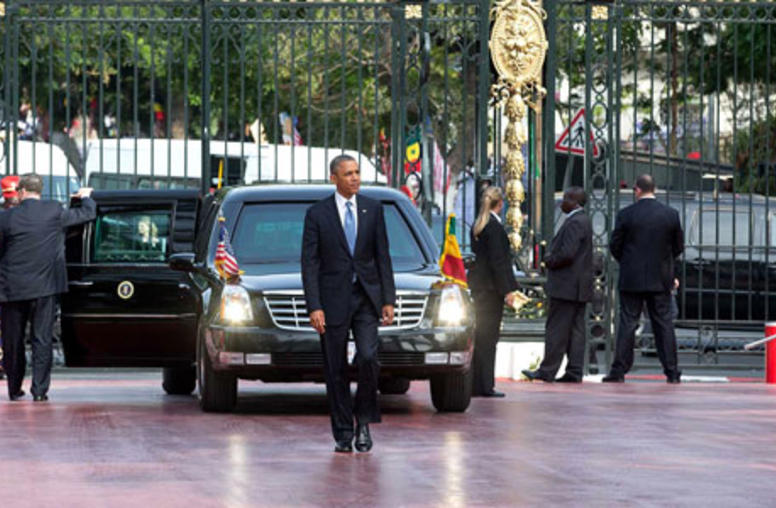
Obama’s Africa Trip Seizes on Progress to Trumpet Economic Potential
President Barack Obama’s first extended trip to Africa will seize on democratic and economic progress in the three countries on his itinerary – Senegal, South Africa and Tanzania – to inspire further advances across the continent and encourage more American companies to plunge in.
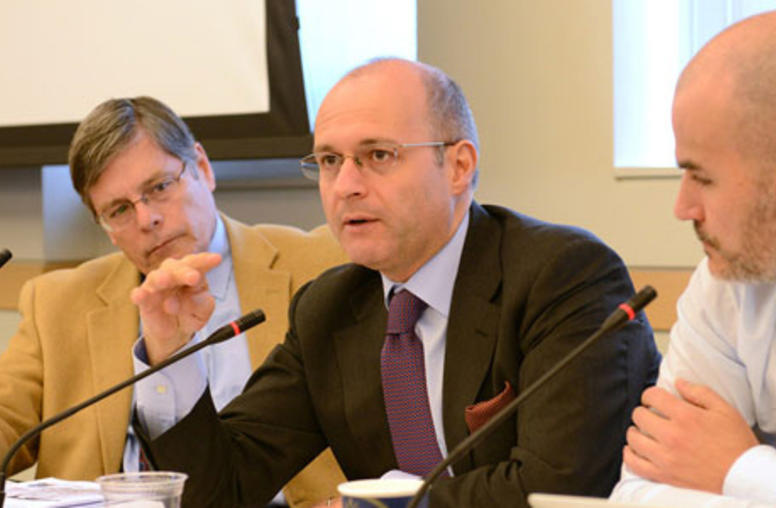
'Big Data,' Text Messages Can Aid, Not Drive Conflict Prevention
New technologies can be effective tools for preventing conflicts, but they have to be part of a coordinated strategy rather than the driving factor for a prevention effort, according to findings from an examination of cases in multiple countries on three continents.